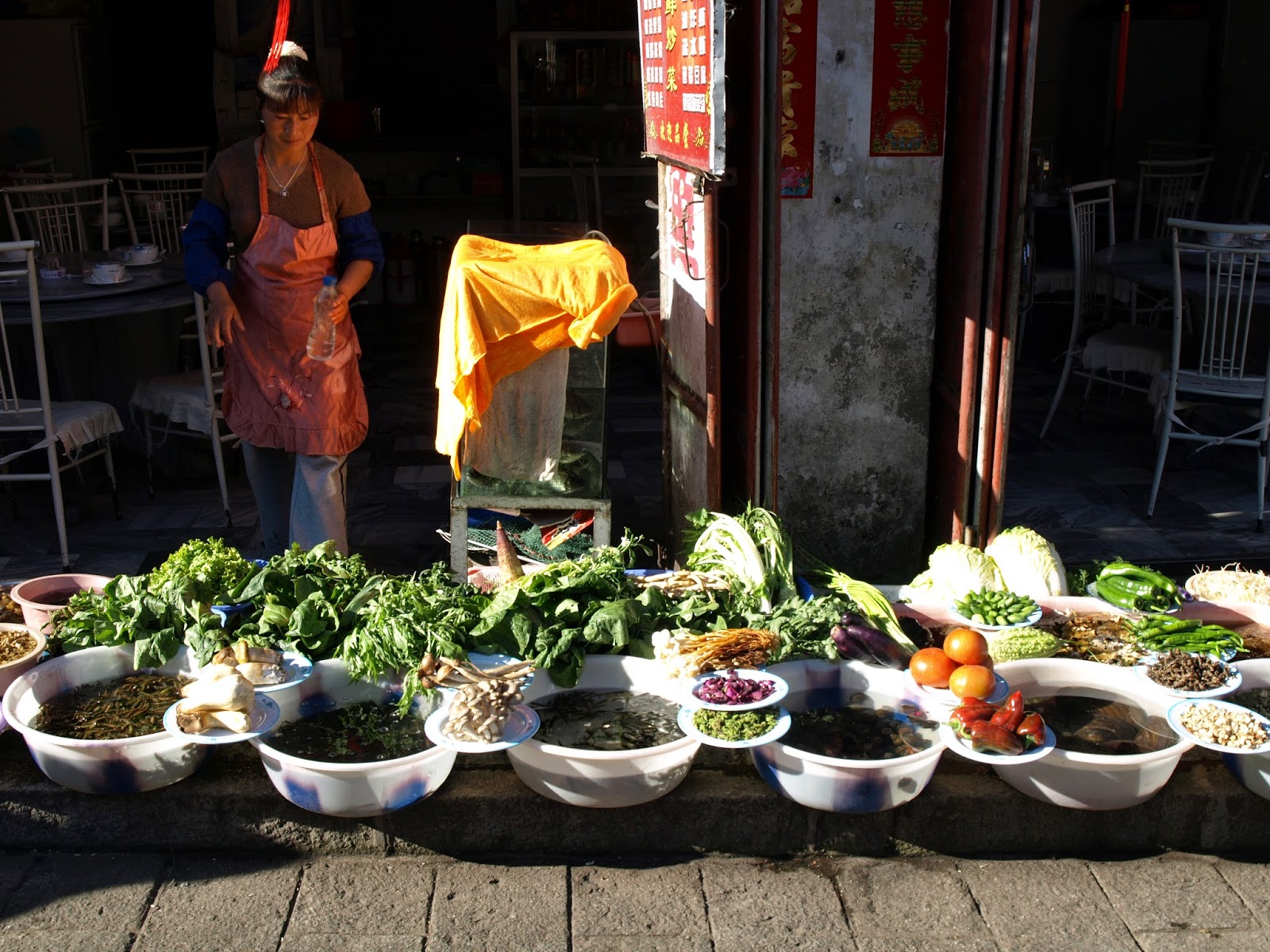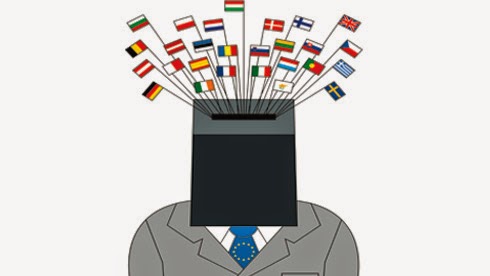Yangshuo hostel. Like I said, scenic
I was
sitting in my hotel room in a converted farmhouse in beautiful Yangshuo, China,
web-surfing, when I came across the story that would inspire my third novel, Hour Of The Rat. An American suspected
of “eco-terrorism” had been arrested in Dali, in southwest China, for having
some thirty pounds of marijuana buried in the back yard of the house he was
renting. I found this strange and compelling on many levels. You’re a fugitive wanted
by the FBI, you flee to China, of all places, and you get involved with massive
quantities of pot?
Dali, a favored hangout of Chinese and foreign hipsters
Dali
Dali is also very scenic!
At the
same time, I wanted to deal with environmental issues in China. It’s no
exaggeration to say that China’s natural environment is in crisis, devastated
by decades of exploitation and neglect, the recent siege of off-the-chart air
pollution in Beijing being just one small example. These problems are so severe
that they threaten to undermine both the health of Chinese citizens and China’s
“economic miracle”—the astounding 30 years of growth that have propelled China from
poverty to the second largest economy in the world. Moreover, they are a source
of social unrest. From poor farmers demonstrating against polluting factories
that have contaminated their cropland to middle and upper class urban
professionals who would like to have breathable air in their cities, Chinese
people have protested about environmental problems, on the streets and on
social media. The government has taken a somewhat more relaxed view of such
protests than it has of others that are more overtly political, but that
tolerance only goes so far because environmental issues provoke an increasingly
large percentage of China’s “mass incidents,” and they have the potential to
bring disparate groups of China’s citizens together.
Protesting a chemical factory
It’s
easy to dismiss China’s problems as things that don’t have much affect on us in
the US, or at least to keep them at a distance because they aren’t connected to
us. But there are consequences and connections if you look.
In
plotting this book, I needed that American connection, and I thought that a
fugitive “eco-terrorist” might do the trick. But what was he protesting?
I decided
to use GMOs – genetically modified organisms. These products,
pioneered by American companies like Monsanto and DuPont, are created by a
process where unrelated genetic material is inserted into a plant or even an
animal to create something with desirable properties that you’d never find in
nature. Most commonly they’re designed to resist herbicides, such as Monsanto’s
Roundup Ready soybeans, or engineered to produce their own pesticide, such as
Bt corn. More than 90% of the
soybeans grown in the US are GM, as is 88% of corn and 90% of sugarbeets. As a
result, GMOs are in nearly all the processed food we eat—if it doesn’t say
“organic,” odds are it’s GM.
Many of the claims made for GMOs– that they produce higher
yields, and that they reduce the use of pesticides and herbicides, for example
– have been called into question and even refuted. A recent United Nations
study pointed to sustainable agriculture as a better way to feed the hungry,
promote economic growth and protect the environment. In the case of pesticides
and herbicides, their use has created pesticide-resistant pests and
herbicide-resistant “Superweeds” – leading to more pesticides and herbicides
and plants designed to resist ever more lethal doses of them.
More to the point for writers of conspiracy-minded
thrillers, the largest producer of GMOs, Monsanto, has a public reputation only
slightly better than Al Qaeda. The company is routinely accused of bullying
farmers, suing them unjustly in the States and driving them to suicide in India,
and if you Google “Monsanto” and “revolving door,” you’ll find pages dedicated
to proving that Monsanto exercises undue influence over the federal regulatory
process due to former employees moving over to government positions.
It’s a fact that past Monsanto employees working for the
FDA have made positive decisions involving Monsanto products, which
in one case prompted calls by members of Congress for a federal investigation.
It’s a fact as well that because these products are
considered “substantially equivalent” to their natural counterparts by the FDA,
they are allowed on the market with a minimum of review, and there has never
been a study of their affect on humans.
Even the State Department pushes GM food, lobbying to
promote the products, writing
trade laws in their favor and preventing labeling laws in other countries. GMOs
are not labeled in the US—and corporate agriculture spent millions of dollars to
defeat a proposed labeling law in California in November 2012.
Chinese
industry is rushing headlong into developing GMO products, both in
collaboration with Western companies and on its own, and the Chinese adoption
of these products is seen by some biotech champions as a “tipping point” —as
China goes, so does the rest of the world. As it stands, China is the world’s
largest grower of GMO cotton, and because it imports such a large percentage of
its soybeans from the US, where some 90% of soybeans are GMO, these products
have already penetrated the Chinese market. Yet the Chinese government has not
yet approved of the mass cultivation of GMO food crops, and there is
considerable suspicion on the part of Chinese consumers about GMOs – especially
when it comes to that Chinese staple, rice.
Rice is
so central to Chinese culture that when you ask someone if they’ve eaten yet, “Chi fanle meiyou?” you’re literally
asking if they’ve eaten some form of rice. This is also a common way to say, “how
are you?” because food is a really big deal in China.
Leftist
nationalists in China are suspicious of GMOs in part because of their perceived
“foreignness,” and in the case of rice, you are messing with China’s cultural
patrimony. But the development of domestic varieties hasn’t calmed consumers’
fears.
When it
comes to environmental and food safety, China may have regulations on the
books, but the regulatory system itself is underfunded, and regulations are
under-enforced and all too frequently ignored. The
scandals in China’s food supply are legion. Hardly a day passes without a
story about the use of illegal pesticides, hormones and antibiotics, “sewer
oil,” adulterated baby milk powder, glow-in-the-dark
pigs, rat
meat masquerading as mutton, chickens
fed minerals to increase their weight, fake
eggs and walnuts,
tofu mixed with detergent, not to
mention the recent sixteen
thousand dead pigs floating down the Huangpu River and into Shanghai’s
drinking water supply. With those kinds of systemic problems, mistrust of new,
unfamiliar and potentially under-tested genetically modified staples is more
than understandable – it’s sensible.
Which
makes what I found with a bit of Googling not all that surprising, but still
pretty alarming.
Since
about 2005 and again in 2010, unapproved
varieties of GM rice have made their way into the food chain, in China.
Greenpeace China found GM rice in Hunan, Hubei, Fujian and Guangdong Provinces, on farmlands and
in stores. Farmers were offered the seeds at a discount, and in some cases, for
free.
Guizhou Province countryside. Guizhou also is a setting in HotR
A lot of the farming in Guizhou is still done like this
What’s not clear is where,
precisely, this rice came from. According to
an investigation by the Chinese journal, Economic
Observer, the university that had official approval to produce
GM rice denied the rice was theirs, yet it held a thirty percent share in one
of the three companies found to be selling the seeds – and of those three
companies, one of them didn’t even officially exist—it was not registered with
the necessary provincial authorities. The rush to move these seeds illegally
into the food chain, the journal speculated, had to do with the university’s
“safety” permit from the government to produce them—it expires in 2014. It’s
the old, “better to beg forgiveness than to ask for permission” approach.
Further
complicating the picture is that genetic material associated with foreign
products was found in some of this rice. It seems to be a case of patent
infringement, which is not uncommon in China—yet it’s also in foreign
companies’ best interest that these products are defacto accepted in the
market—all the easier for them to make the argument for their own. And there
are also cases where foreign entities are involved with Chinese counterparts,
and one side or the other evades regulation and accountability.
For
example, in 2012, Tufts University, the USDA and a Chinese university were
implicated in an
unapproved study involving Chinese children fed “golden rice”— genetically
modified rice that is enriched with beta carotene. While the idea behind this
rice – preventing Vitamin A deficiency – may be a good one, conducting an
experiment on Hunan village kids without their parents’ full informed consent,
was not. The lines of responsibility are difficult to determine in this case.
So far, three Chinese officials have been sacked, and Tufts is conducting an
internal review.
So, in
China you have GMO research taking place in an environment with a poor food
safety record and an opaque decision-making structure that makes review and
accountability difficult. In the US, you have a GMO industry dominated by
several large players who have poured millions of dollars into the political
system to have the regulatory system written in their favor.
Industry
spokespeople tell us that any worries about the safety of these products are
unwarranted, even “anti-science.” It is true that there is not a lot of data,
precisely because they were released onto the marketplace without any rigorous
studies of their effects on humans. But let’s put aside the evidence we do have, that GMOs may not be as
nutritious as their natural counterparts, that they may cause allergic
reactions in some people, that they may promote tumors and kidney and liver
damage in rats. Let’s also put aside any concerns we have about a GM salmon
that grows more rapidly and is extremely aggressive getting loose into the wild
population, or questions about how an
unapproved, experimental GM wheat showed up in farmers’ fields in Oregon. Let’s
assume, for the sake of argument, that GMOs may be as safe and nutritious as
their natural counterparts.
We’ve
all heard about the dangers of monoculture in food supplies, the Irish potato
famine being just one example of a catastrophic crop failure due in part to a
lack of genetic diversity. What does it say about our food system that three
large companies, two of which are American, control half of the world’s
proprietary seed market, and that one of those alone, Monsanto, over one
quarter of it? That five huge biotech companies have bought up more than two
hundred other seed companies, greatly reducing the number of seeds offered,
making commercial access to a greater diversity of crops more difficult for
farmers? That the average price of planting an acre of soybeans has risen 325%
in less than ten years? Do we really want that kind of “monoculture”
controlling what we eat?
By the
way, my original inspiration, that American eco-terrorist busted in Dali. What
I knew about him from the
article I’d read in Yangshuo was that he’d been accused of acts of arson in
the Pacific Northwest, including one that destroyed a horticultural center at
the University of Washington. There were no details about the motives behind
the attacks. It wasn’t until I’d nearly finished writing the first draft of
HOUR OF THE RAT that I looked deeper into the case and found out what those
were.
He and
his group were protesting GMOs.
Lisa…every other Wednesday...





























.jpg)





















